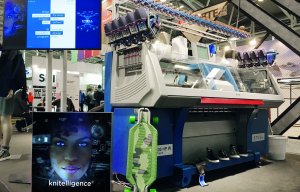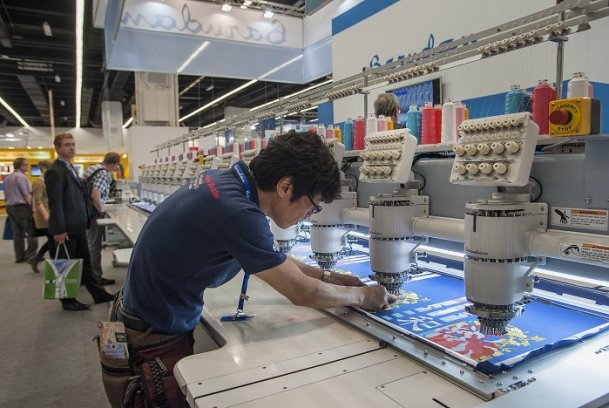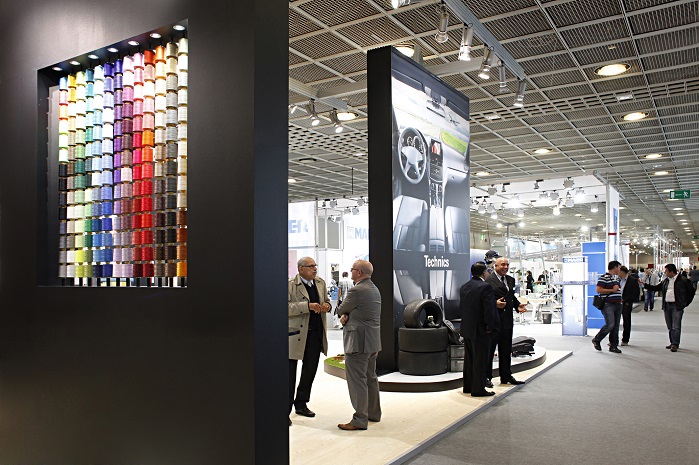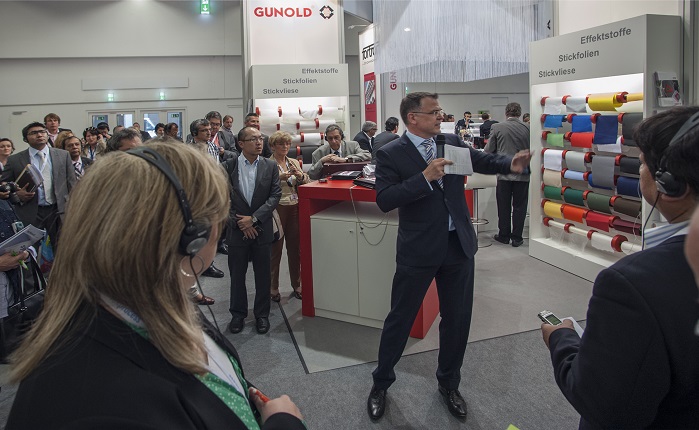
Stoll presents innovative knitting solutions at Techtextil & Texprocess
New technical developments offer new chances for shoe manufacturers to meet the challenges of the market, Texprocess organisers report.

19th December 2014
Innovation in Textiles
|
Frankfurt
New technical developments, such as CAD, 3D printers and Smart Shoes offer new chances for shoe manufacturers to meet the challenges of the market such as process optimisation.
The following contribution elucidates the most important trends that can also be seen at Texprocess, the international leading trade fair for processing textile and flexible materials that is taking place from 4-7 May next year.
A visit to the international fairs Texprocess and Techtextil will offer a wide view of shoe manufacturing technology and fashion. Technical textiles which also can be used for shoes, IT process optimisation for special solutions for the shoe manufacturing sector and bonding technology are only a few subjects that are showcased on the leading trade fairs for technical textiles, non-woven fabrics and the processing of textile and elastic materials.
One of the state-of-the-art production technologies that are used for the manufacturing of shoes is rapid prototyping. Rapid figuring has become affordable even to small companies and development offices by means of efficient desktop computers, costing less than EUR 3,000, and coloured consumables.
The data for a prototype are generated by computer-aided design programmes that continually offer more sector-specific solutions. The central point of discussion is the direct networking of product development (computer-aided design), product data management (PDM) and resource planning (enterprise resource planning ERP) by means of an efficient data base. Based on their history, many companies are provided with isolated applications in these divisions which may cause friction loss, duplication of work and lack of transparency of processes.

This costs the companies a lot of money and is poison to economic efficiency. Even though credits are cheap in Germany at the moment, and the competitors in the Far East are struggling with increasing labour costs, the shoe manufacturing sector is rated risky and not trustworthy by the bankers. This means that the hidden treasures must be raised, organisers report.
Rapid figuring and short production are possible thanks to information technology (IT). However, that would not help without optimising the operational sequence scheduling. According to Theo Kuffler, Director of RG Technologies, Feldkirchen-Westerham (Germany), process optimisation still offers much potential of cost cutting for Central European companies. The keywords are process control and monitoring, quality reproducibility and flexible automation.
These things seem to be an issue in the manufacturing process even nowadays. The developments of the engineering industry can contribute to the aspect of flexible automation: Cut out technology directly combined with the CAD system and programmable sewing and assembly machines. On the one hand both approaches can shorten the working processes, set-up times and thus make quality assurance easier. On the other hand, both approaches signify investment in machinery and plants and training of staff for the programming work as well.
Retail offers an overwhelming wealth and variety of shoe designs. Nevertheless, individualists want to design their shoes online, which is mass customisation.

This is not a problem thanks to industrial single-piece production. The trailblaser was the sports shoes manufacturer Nike in 1999 and further suppliers followed soon. One can only speculate about the current market share of mass customisation in the shoe manufacturing industry.
However, it offers the advantage of a direct interaction with the wearer of the shoes, who presumably is not only addicted to the internet but also is a pioneer in terms of shoe fashion. An analysis of the orders sheds light on the preferences of the target group, and the result can be used in the next assortment.

Business intelligence for the fibre, textiles and apparel industries: technologies, innovations, markets, investments, trade policy, sourcing, strategy...
Find out more